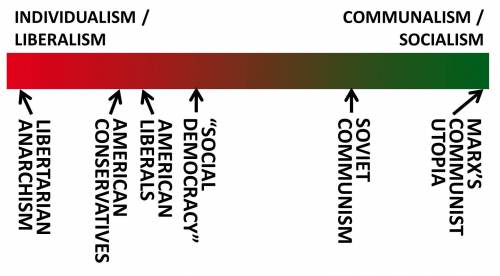Economics and economic systems are very important to me. I’ve always been fascinated by them. At the same time, part of my motivation for studying economics has always been to try to understand better how society can improve the living standards of all it’s people. This is much the same motivation that has always driven the greatest economists such as Adam Smith, John Maynard Keynes, and even Karl Marx. I hope I can help you to better understand the economic system in which you live as well as those in which others live. If we all become more knowledgeable, there’s a chance we might improve things.
Perhaps my greatest hope for the course is that you learn to think critically and deeper about economic systems and related issues. People feel strongly about their economic system and how their government should relate to it. Unfortunately, ideology, politics and slogans are too often used as substitutes for critical thinking and analysis. Too often people resort to simplistic and emotional labels. They act as if there’s only 2 or 3 systems called socialism, communism, or capitalism as illustrated in figures 1 or 2 shown here.
Worse yet, they classify these simplistic labels as either “good” or “evil”. The world isn’t that simple. People aren’t that simple. And no economy is that simple. No economic system is exactly like another. Yes, there are patterns, but there’s not just 2 or 3 systems, good and bad. Further, there’s strengths and weaknesses in each system. Facts are stubborn things. There’s room for disagreement, particularly in this course. But it needs to be informed and thoughtful disagreement, not simplistic sloganeering.
What Are We Studying?
One of the other things I hope you learn in this course is how economic theories & ideologies affect economic systems and how that affects how people live. I really want this course to take the “comparative” part of “comparative economic systems” seriously. What do I mean by that? Well, let’s not just compare different ideological perspectives on economic systems which is what the typical political-economic categorizations do. I want to compare actual economies also because economies and their empirical performance are the best evidence of what the economic system is. So let’s compare different countries, their economies and their performance. In coming weeks I’ll be showing you some fascinating tools now available to make your comparisons and create your own insights to share. But let’s not stop there, we can (and will) also compare economic systems across time, too. The current economic system is very different from what we had in the past and it’s changing rapidly. I want all of us to discuss and form our own thoughts about what the future of the economy and our economic system will be like. How will we organize production and work in the future? How will we get our goods, our services, our healthcare, and our education?
Given this broad perspective, you may be curious as to what my own perspective is. My objective is to help present a course that helps you learn about multiple perspectives on economic issues. My objective is NOT to sell or push my own particular viewpoint. Of course, my views will necessarily color anything I write, the same way that personal views color any writer’s writings. Nonetheless, in the interest of full disclosure, I’ll try to summarize my own views. In short, my own position is difficult to classify. I share many perspectives with those of free market, capitalist advocates. I do believe competitive markets can be a tremendous positive force in society. But I also know that markets only have these wonderful effects if certain conditions exist. Without sufficient regulation or guidance from government, markets can easily become as oppressive and exploitative as any dictator-run “socialist” system. At the same time there many goods and services that a free market, private property system simply won’t provide or provide to all who should (in my opinion) have access. It is necessary and desirable to have government and society create social institutions and services to provide these services. So my views are somewhat eclectic or pragmatic (I call it “realistic”). Many free-market fundamentalists think I’m a socialist. Many socialists think I’m a free-market capitalist. I particularly believe institutions, culture, and history matter – oftentimes more than ideology. I believe in checking the empirical record. Theory is nice, but only when it works. When it doesn’t and the facts don’t fit, we need new theories. In terms of economics background, my own specialized graduate studies were in what is called Social Economics, Institutional Economics, Human Resource Economics, Industrial Economics, and the History of Economic Thought.
Finally, beyond the topical content of this course, I also hope to do a couple things. First, I hope to help you become a better critical thinker. The ability to read and critically analyze what’s being read, to ask whether the facts support the author’s assertions, and to form your own logical opinion is an extremely valuable skill. It will help all of you in whatever future studies you pursue and whatever careers you choose. I also hope that we can have some fun, engage in some interesting discussion and commentary, and even learn a few things about the Web. I also hope you help you develop some writing and communication skills that will be increasingly needed
Oh, one more thing: You might want to check out the following website: Top 10 Reasons for Studying Economics. It’s a fun, tongue-in-cheek list of reasons to study econ from a British econ professor. Personally, I want all of you to take lots of economics courses (more work, income and job security for me!) but I don’t think you should actually grow up to be professional economists(I don’t need the competition!). Let’s have fun and learn something together.

